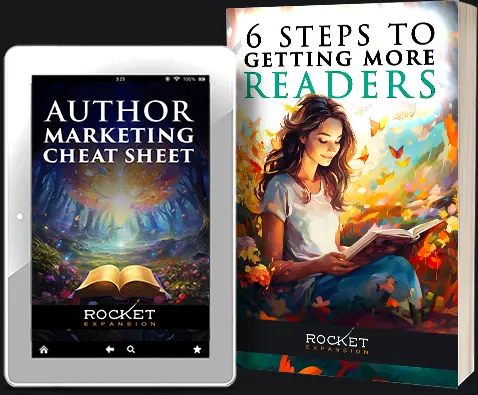Writer’s Block: Why It Happens and Where To Go From Here?

What is writer’s block?
There is always the question of “is writer’s block a psychological condition?” or “is it a myth?”
Nonetheless, it’s something most writers have experienced at some point. And, with each person, the experience has been different.
But, what exactly is it?
Writer’s block, also known as a “creative block”, is when you are not able to start or continue writing something new.
I experienced it to some degree writing this blog post. So later on I will share some ideas that helped me and many other ideas to get rid of my creative block.
10 Common Causes of Writer’s Block

1. The Fear
Sometimes when we start a new project (writing) there is the thought of whether this book, article or other pieces of writing will be good enough. You wonder if people will like it.
The fear of failure can be crippling, it prevents us from taking action.
And sometimes, it’s not necessarily the fear of failure, but the fear that you may not be able to express everything that is in your mind in the way that you want as the writer.
This often happens to beginner writers.
But the reality is that there is nothing to fear. There is no reason for the “what ifs,” writing is an art form that can always be improved.
2. Burnout
Burnout is when you are mentally, physically and/or emotionally exhausted due to prolonged stress. When you are burned out, doing things that require a lot of mental energy such as writing can be difficult.
3. Self-criticism
We can be very hard on ourselves. Even though there is progress, sometimes the progress is not good enough for you.
You might compare yourself to other writers, more often than not, writers that are far more experienced. Forgetting that they too started somewhere.
Until you can have some appreciation of your work and its growth, your work may never seem good enough in your eyes.
4. Perfectionism
Sometimes even before you start writing you want everything to be perfect. In your venture to writing perfection, you end up not starting the actual writing as you are constantly thinking of how to make your work perfect.
5. Lack of motivation
When you lack motivation, either internal or external, writing can be very difficult because there is no will to act.
Although the vision and ideas are there when you have no motivation to write it won’t happen.
6. Stress
Putting yourself or being placed under a lot of pressure whether physically or mentally can cause stress. The degree will of course differ according to each person and the amount of pressure they experience.
Depending on the type of writer you are, stress can be the main cause of your writer’s block. Especially if you have many writing deadlines that you must meet.
7. Self-doubt
We all experience some level of self-doubt, especially when it involves a new idea. We wonder if things will work out. It’s somewhat a natural response and can be beneficial at times as it allows you to think things through.
But, when self-doubt starts to affect your creative process, it becomes problematic because you want to give up without even trying.
8. Having too many or too few ideas.
When you have too many ideas, deciding on which ideas to go for can be daunting. As a result, starting can be difficult because you don’t know where to start.
It’s the same when you have too few ideas, it’s like meeting a dead-end and not knowing where to go.
9. External distractions
If you have many other things going on in your life/external environment, it can be difficult to focus on writing.
Especially if they are important and require you to go over the process of decision making.
10. Not knowing what causes your writer’s block
If you know the root cause of your creative block, you can deal with it. But if you don’t know, finding a way to resolve it might be difficult.
It can take time figuring this out, but once you know the cause you can be able to work towards finding a way out of it.
12 Great Ways To Overcome Writer’s Block
1. Have a writing routine
Develop a routine that you can follow, this will make sure that you can get some work done.
If you only write when that “moment” comes, reaching the finish line will take forever. But if you establish a habit to write regularly, when it’s time to be creative- the creativity will naturally flow.
2. Map out your story
Have a plan of action for the whole storyline.
Having an outline of what you are going to write will give you some form of structure and help you even when you are out of ideas.
3. Read more
You can get inspired by reading from other writers.
Reading more will help you overcome your writer’s block, especially if it comes from a lack of ideas.
4. Write what is on your mind
Sometimes you can end up writing not what you want but what you think people want to write. It’s not always a bad thing to write what is on your mind.
Writing what is on your mind can help you get past your writer’s block.
5. Do non-writing activities
Take a break from writing, try something new.
Sometimes removing yourself from your author/writing headspace can help you rest your mind. It can allow you to come up with fresh ideas.
6. Change your scenery
A change of scenery can help inspire new ideas and improve productivity. After working in the same station/location for a while, it starts to be uninspiring.
Find a new location to work from. Working in a new environment can get the juices flowing.
7. Exercise
Get the blood flowing by exercising, this can help reduce stress and give your mood a lift. If you’re not up for a run or jog, have a dance-off.
The point is for you to move! Exercising allows more oxygen to flow to the brain. This will help you with your creative thinking.
8. Clear your head of distractions
If there are other external things that you have to deal with, that require a lot of decision-making, focus on dealing with those first.
This will allow you to be able to get past the distraction and focus on writing, as you won’t have random pressuring thoughts coming to mind when you try to write.
9. Make progress your goal
Don’t overwhelm yourself with thinking too much about the final product. Rather make small goals you can work towards until you finish writing.
From completing your first draft to editing the draft and making a second draft after getting some constructive criticism.
All these can be progressive goals you work towards.
10. Get someone whose opinion matters to go over your draft
Get someone who can give you honest and constructive criticism on your draft.
Two things can come out of this:
- You will get reassurance if you’re on the right track and are doubting your work.
- You will get ideas on how you can improve the draft you have.
11.Give yourself a reward
The progress that you make during your writing process makes you one step closer to finishing.
So when you reach the goal you set for the amount of work you should do according to your routine, reward yourself!
12. Use a Different Writing Tool
Since writer’s block is something so many people experience, various tools have been developed to help you manage and get over this block.
Book writing tools to help you finish that book
Squibler – Helps you outline your book and has a feature to add story elements. You can easily collaborate with others who can help improve your draft in real-time.
MindMeister – You can create mind maps to plan out what you will be writing, this can help you visualise everything you will have to write about and how everything links.
Freewrite – This tool removes all distractions so that you can focus on writing your amazing story. Freewrite is a modern-day typewriter, which ensures that pop up notifications don’t affect your writing process.
Writer’s Block – You can have all your ideas in front of you in the form of blocks and expand on them as you go. You can organise everything by color coding each chapter, topics, etc.
Ilys – You set a word count goal and then get the writing going. You cannot edit, delete or even go back until you’ve achieved your set goal.

Want help with your author marketing? Get our FREE ebook and cheat sheet: 6 Steps To Getting More Readers.
By subscribing, you agree to get emails from me, Matt Ziranek. I’ll respect your privacy and you can unsubscribe any time.






